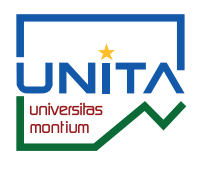Giorgia Arbuti - USMB / UNITO

Revisiting the scientific career of a deceased researcher using artificial intelligence creations: The case of Michel de Certeau
Summary
As we approach the centenary of Michel de Certeau's birth (2025), a figure who is part of the common heritage of the territories covered by UNITA, as a researcher born in Chambéry, seat of the Université Savoie Mont-Blanc, and whose influence remains worldwide, we need to revisit his conceptual proposals, particularly in the reference book L'Invention du quotidien (1980). At the time, the author was formulating concepts relating to the use of traditional media (books, print media, radio and television). Detour and resistance are examples of tactics developed by media consumers in the face of communication strategies. The author, who died in 1986, was unaware of the mainstream Internet and more recent communication technologies such as artificial intelligence. The primary aim of this research is to question concepts applied to traditional media, and to revisit them in order to check their validity in the light of new developments in a now-hybrid daily life, i.e. both physical and digital.
Supervisors
Jacques Ibanez Bueno (USMB)
Simone Natale (UNITO)
Andrea Bringas - UNITBV / USMB
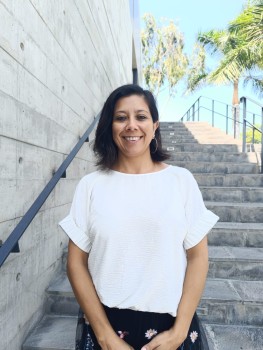
The valorization of cultural heritage through the co-creation of value for the innovation of tourism services in smart destinations in Romania
Summary
Managing the capitalization of cultural heritage for the development of tourism and smart destinations is a very topical issue in Romania. Cultural heritage it requires a multi-dimensional, multi-stakeholder and multi-disciplinary approach to take into account all the different perspectives involved and to create an overall conceptual framework that interprets and governs the variety of interests and needs.The Romanian cultural heritage is, as research shows for other countries, a central issue, especially from the perspective of problems, such as the traditional dilemma of preservation vs. improvement. If previous researches were mainly oriented towards the dominant logic of tangible goods, in this research we propose an approach from the perspective of the interaction between tangible and intangible elements, based on the dominant logic of service, generating hypotheses that describe multiple relationships between the constructs research. In the current context of digitalization, the (co)creation of value for innovation processes in tourism services becomes essential for participation in online communities and, implicitly, must become the first priority objective for organizations and companies in the tourism industry to develop in the online environment, as a region or tourist destination brand and/or as a company/organization brand. Against this background, the dynamics of co-creation, service innovation and competitive advantage in smart destinations are analyzed through the adoption of information and communication technologies and by capitalizing on the moderating effects of trust.
Supervisors
Bianca Tescașiu (UNITBV)
Elodie Manthé (USMB)
Alaia Davant - UNITO / UPPA

Witches then and now: from the patriarchal ban to the rehabilitation of female learned and rebels through arts and literatures
Summary
This thesis project builds on the philosophical reflections developed by Carolyn Merchant in The Death of Nature: Women, Ecology and the Scientific Revolution (or by Silvia Federici and Alicia Puleo in their respective essays). She argues that the status of women is the result of a systematic subjugation -–which runs parallel to the capitalist exploitation of nature– imposed by the founding fathers of modern science. As a social and mental construct, the enterprise to annihilate all the rebellious women would culminate in the witch-hunts conducted by the Inquisition in the sixteenth and seventeenth centuries. If the witch figure has inhabited Western imagination for centuries, the last ten years have seen films and novels flourish in Romance-speaking countries (Italy, France, Spain), which fictionalise these same historical facts, highlighting the tension between dissident or learned women (midwives, herbalists, etc.) and a repressive patriarchal order hiding behind the argument of reason. The purpose of the thesis is to study these historical narratives from a socio-critical and eco-feminist perspective, in order to measure the ability of literature and the arts to work on representations, to deconstruct a cultural heritage imbued with a patriarchal ideology, and on the contrary to rehabilitate an invisible cultural ‘matrimony’. How can rethinking representations of the past ultimately influence the present and the future, at a time when “new witches” – from feminists denouncing gender violence to ‘green witches’ reinventing new ways of inhabiting the world – are also being hunted down?
Supervisors
Chiara Lombardi (UNITO)
Pascale Peygara (UPPA)
Maria Dafni Gerodimou - USMB / UNIZAR

The use of gamification tools to enhance tourist participation, cultural heritage valorisation and sustainable tourism practices in European destinations
Summary
Cultural tourism destinations are faced with mass tourism and tourism practices that can alter both the quality of the tourism experience and the cultural and heritage sites themselves. The gamification of certain tours, activities and destination websites could contribute to a better understanding of these destinations, better engagement of tourists and more effective tourism. This research aims to better understand the adoption of gamification during a touristic experience and especially its attitudinal and behavioral outputs. If previous researches were oriented towards the acceptance of such solutions and the effect of gamification on consumer’s engagement and purchase intention, in this research we propose to study gamification as a part of a whole touristic experience through the Expectation Confirmation Theory lens. The main objective is to better understand the mechanisms by which gamification solutions influence tourists to adopt responsible behaviors within the destination they are visiting. In the context of cultural destinations, the challenge is to find levers that both enhance the value of heritage and guide tourist behavior towards greater respect, cleanliness and heritage preservation. In addition, this research aims to establish whether gamifying a destination can create a stronger bonds with tourists, leading to favorable attitudinal and behavioral consequences for the destination.
Supervisors
Elodie Manthé (USMB)
Sara Catalàn (UNIZAR)
Nuria Llorente Belda - USMB / UNITO

The Politicisation of Borders and the Shaping of Identity
Summary
Thirty years ago, it seemed that national borders were breaking down, as the Cold War came to an end and the Maastricht Treaty introduced a borderless space within the European Union. Today, conversely, the notion of a borderless world appears ever-more elusive as borders are constantly reinforced and extended. The UK serves as a fascinating case -study of these trends where successive governments have sought to reinforce territorial boundaries, most recently by ending freedom of movement for EU migrants and introducing strict new migration controls that risk contravening international law. EU and UK efforts to reinforce their borders have proved largely inefficient. The UK has seen a significant net increase of illegal migration since 2018. Yet, the strengthening of the border serves an important symbolic function in political terms, notably providing an illusion of security in an unstable world. The politicisation of the border also serves to demarcate national identities, as borders are presented by populist leaders as a means of protecting a supposedly homogeneous people from external threat. These processes in turn create significant threats to human rights and reinforce cultural and symbolic borders within national territories. This interdisciplinary project will draw on methodologies and critical tools from Politics, Sociology and Linguistics to examine how some political groupings within the UK are developing alternative ways of thinking about borders as dynamic, open and inclusive, thus allowing the construction of inclusive, positive identity narratives that promote human rights, tolerance and diversity – key elements of the intangible cultural heritage of European nations.
Supervisors
Emma Bell (USMB)
Massimiliano Demata (UNITO)
Valentin Mansilla - UNITO / UVT
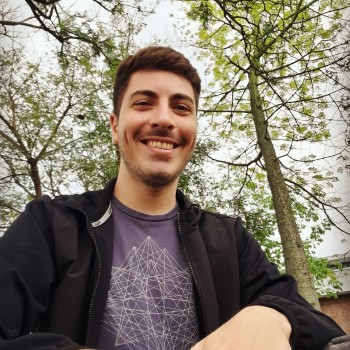
ACUSTEME. Development of an OWL ontology for Linked Data publication of Italian and Romanian ethnographic and ethnomusicological digital archives
Summary
There are presently several digital repositories in Europe, dedicated to multimedia resources and metadata of ethnomusicological and ethnographic interest, implemented by different RDBMS technologies and catalographic standards, but without a shared normative standard. Although diversity makes up an asset – as specific digital cataloguing system fit the peculiarity of the materials and avoid too rigid standards and top-down heritagization processes – all the same, different approaches represent a problem for resources accessibility and visibility, both on a national and an international level. Digital catalogues could become a unified tool for ethnomusicological and ethnographic research if they are to be used and queried in an integrated way. Considering the history of digital archives in the Italian ethnomusicological field, and the substantial amount of already catalogued data, the enforcement of an international standard would be counter-productive and could be only carried out through a costly data conversion by each local resource centre. Current technologies allow for building a convergence of different descriptive models through Linked Open Data (LOD) technologies, bottom-up and cooperatively. This project aims to build an interoperable model through the creation of a computational ontology for the ethnomusicological and ethnographic domain, laying the foundation for semantic interoperability of digital archives. The case studies for the implementation of this research project will concern interoperability of Italian and Romanian digital archives, a proof of concept that has strong potential for international expansion and scalability.
Supervisors
Ilario Meandri (UNITO)
Otilia Hedesan (UVT)
Francesca Montanaro - UPPA / UNITO
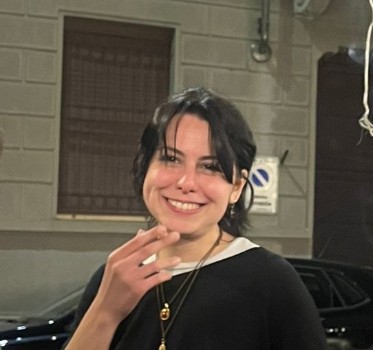
Contributing to the creation of cultural heritage through the choice of French as a form of artistic expression
Summary
In today's world, multiple migrations have led a large number of authors to adopt a language other than their mother tongue, and many writers (outside the French-speaking world) have chosen French as their means of artistic expression, to name only S. Beckett, M. Kundera, A. Makine (who has become a member of the Académie française) or A. Weber. More rarely, their colleagues of Romance mother tongue, such as E. Ionesco or J. Semprún, have taken this route. The thesis will be devoted precisely to this last movement of intellectual and cultural migration: it proposes to first list the writers corresponding to this model for the period from 1945 to 2020, to then analyze (based on specific cases) by what strategies (translation, self-translation, change of language, appropriation of literary models etc.) they have succeeded - or not - in inscribing themselves in the French cultural heritage - thus participating in the construction of a European identity in Romance languages. By changing the language of litterary expression, thoses wrighters obtain also the possibility to bequeath their individual memory, that is generally linked to a collective one, to a broader public who can explore experiences of other nation by this means, for example every day life under the communism in the books of rumanian authors written in French.
Supervisors
Caroline Fischer (UPPA)
Franca Bruera (UNITO)
Ornella Nobili - UNITBV / UNITO
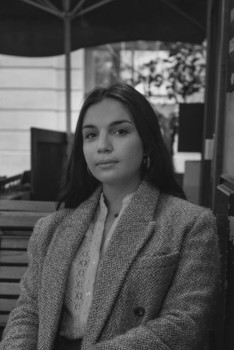
Documenting the Preservation of Digitized Archival Film: A Transdisciplinary Collaboration between Universities and Film Archives
Summary
Film studies have historically focused on films as moving images projected on a screen, mainly treating them as texts to be interpreted. However, the relatively new practice of film preservation has veered scholarly attention from films as moving images to films as material objects, thus broadening the discipline’s boundaries from the humanities to the hard sciences. Film preservationists can no longer limit themselves to a literary-based hermeneutic approach; they also need to understand the material nature of film. The introduction of digital technology has further complicated the issue by adding computer science to the list of disciplines needed to restore and preserve audiovisual works. Despite the need for a transdisciplinary approach, film preservation courses remain mostly limited to cinema and/or media studies departments, and film preservationists have either a humanistic or a scientific background. This Ph.D. project aims at bridging the gap between humanistic and scientific knowledge in film preservation by recruiting a candidate who would digitize titles from the film collection of the Museo Nazionale del Cinema in Torino, Italy, supervised by a Cinema Studies professor from the University of Torino, Italy. The second part of the project would involve designing and implementing algorithms for the digital color restoration of the video frames and for the correct preservation of the original content into its digital form, under the supervision of a professor of Electronics Engineering, Telecommunications and Information Technologies from Transilvania University of Brasov, Romania. The final step would be the documentation of the process in a publicly-accessible database.
Supervisors
Mihai Ivanovici (UNITBV)
Sabrina Negri (UNITO)
Rebecca Pagliari - UNIZAR / UNITO
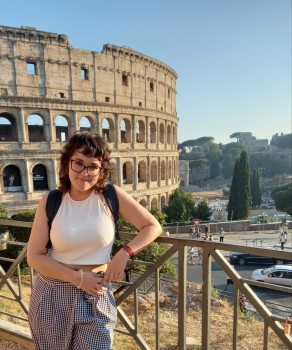
Written culture and literacy in Northeastern Hispania and Northern Italy (2 nd BCE-2nd CE): a comparative study based on epigraphy
Summary
The research project is based on the epigraphic documents of two well-studied regions (Northern Italiy — Gallia Cisalpina— and northeastern Hispania), with which the two co-directors of the thesis are familiar. It aims to delve from a comparative perspective into the transformations that written culture and literacy experienced—with different rhythms and notable local particularities—in these two regions between the 2nd century BCE and the 2nd century CE. During this period both regions were integrated into the Roman Empire and became urbanized areas (although with rural spaces linked to them —especially in mountain areas) with an early integration into the Roman civic community. The research therefore starts from the incipient writing practices of local cultures such as Iberian and Celtiberian in Hispania, or Celtic and Venetic in Cisalpina —using their own writing systems and languages—, and it ends with the phase of maximum intensity of Roman epigraphic culture in the 2nd century CE. This century is unanimously acknowledged as the period of Antiquity in which literacy reached a greater development, although the degree of literacy of the ancient Roman population—and especially of women and inhabitants of rural areas—is a debated issue, particularly since the underestimating study of this phenomenon by W. Harris, Ancient literacy, 1989.
Supervisors
Francisco Beltran Lloris (UNIZAR)
Silvia Giorcelli (UNITO)
Marie Pépicq - UPNA / UPPA

Restoring the memory of the Spanish Civil War: towards a common trans-Pyrenean heritage?
Summary
While history is the scientific study of past events, memory is the subjective transmission of memories between individuals. Memory work is therefore a process of construction and sharing, in which memories, necessarily plural, are heard and included in the elaboration of historical discourse. It is both a key to rebuilding and understanding communities, and a tool for democratic defense. Memory work combines scientific research (data compilation, geographical organization, archaeological digs, DNA identification, testimonies), education (transmission of narratives to various audiences, publications) and heritage (transmission and concretization: war memorials, commemorative itineraries). In recent years, the French presidential election and the conflict between Russia and Ukraine, as well as in many other countries, have shown that the desire to transform the present is based on an alarming rewriting of the past. Consequently, the work of memory remains fundamental, in order to guarantee the plurality of testimonies and historical discourse, and to counter the manipulation of facts deceptively presented as “alternative”. The project aims to explain Pyrenean memory practices in the light of the Spanish Civil War (1936-1939) and the years of repression that followed. Focusing in particular on the analysis of memorial institutions such as the Navarrese Institute of Memory in Pamplona, the study will compare the mechanisms for restoring the memory of this conflict in a trans-Pyrenean dynamic. Based on the Spanish case, the aim is to gain a better understanding of the re-articulation of epistemological and political issues in historical work in contemporary societies.
Supervisors
Gemma Piérola Narvarte (UPNA)
Laurent Dornel (UPPA)
Anastasia Psoma - UNIBS / UPPA
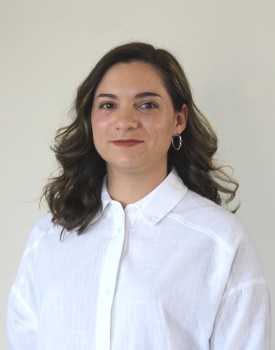
New life and proposals to reactivate abandoned alpine areas: perspectives and roles of cultural communities in local development processes through the reuse of architectural heritage
Summary
The research aims to acquire specific knowledge about architecture and settlements in the mountain area, finding appropriate and effective methods to address their conservation and to valorize them. Beyond economic reasons, recognition and obsolescence play a role in abandoned processes. Several examples can be quoted concerning those settings that have not exactly been abandoned but have been underused because people prefer homogeneous buildings, even if they are anonymous models of dwelling. Implementing a co-evolutionary approach, some other cases can be identified, which prove how built heritage could be recognized and valorized even after radical changes in cultural and ethnic context take place. The management of these potentialities could be the subject of further research in the field. Therefore, the first step of the research consists in the analysis of the causes and of the consequences of abandonment: the processes of abandonment, the relationships with local memory, landscape’s transformation and the individuation of some methodologies for investigating the problem. As a second step, we will assess the possibility of promoting and encouraging the comeback, through strategies and prospects having the aim of relaunching historical mountain centre again, imagining a possible future. Attention will be given to normative approaches applied in UNITA countries. The last step will concern the discovery of some practical examples where the abandoned areas were converted and the people came back. The focus is put on the role that cultural heritage can play in these processes, from the perspective of a significant paradigm shift that places the preservation and the enhancement of these assets in a circular process starting from the territory and ending in the territory.
Supervisors
Barbara Scala (UNIBS)
Christine Bouisset (UPPA)
Wally Russo - UPPA / UNIZAR

The landscapes of war: material testimonies and narratives of the conflicts of the 19th Century
Summary
The Carlist Wars were a civil conflict that marked Spain's entry into the contemporary era. Although the conflict affected the entire peninsula, the main centers were found around the French border -Basque Country-Navarre and Catalonia- and in the mountains of Maestrazgo. The war disrupted the lives of the people. Their territory became a battlefield. The villages were the scene of armed clashes, but they also had to suffer the daily presence of the troops. The Carlist conflict cannot be understood without knowing the territory, the villages, the roads and, in short, the geography of the war. Zumalacárregui became famous for his use of the territory. Cabrera also made use of his knowledge of the people and the characteristics of the country. The project proposes to study the remains that remain of the territory in which the war took place and to enhance the value of the urban and natural heritage remains that refer to the conflict. In this way, the aim is to reinforce the identity of the territory with the knowledge of its own past. And, at the same time, to preserve the architectural or natural elements that allow us to identify the effects of the war even today.
Supervisors
Pedro Rujula (UNIZAR)
Laurent Dornel (UPPA)
Joelle Saliba - UPPA / UNITO
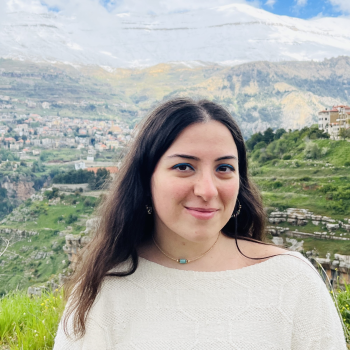
Artists’ house museums in Romance-speaking Countries: shaping a model to Foster Cultural Participation and Social Inclusion
Summary
Although artists’ houses that are open to the public exist in many countries, these cultural ‘objects’ can be conceptualised in different ways depending on their geographical and linguistic context. The research hypothesis is as follows: a specific type of house museum is common to Romance-speaking countries and distinct from the Anglo-Saxon, Slavic, or Germanic ones. The aim is to identify the specific characteristics of this model through a comparative analysis of selected artists’ houses present in the UNITA alliance countries. Moreover, house museums seem to be numerous in rural areas, making them a vital vector for territorial development. However, how can we reconcile tourist appeal with cultural relevance? This will be one of the central questions of the research. From a methodological point of view, the approach will be fundamentally interdisciplinary, with contributions ranging from literature and art history to history, geography, museology, regional planning, along with sociology, law, architecture. The subject also requires applied research about the cultural and social context of the places analysed. The challenge will be to better understand these house museums to identify their potential and develop accessibility and cultural participation.
Supervisors
Hélène Laplace-Claverie (UPPA)
Silvia Pirredu (UNITO)
